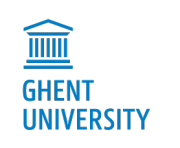General information
For the flyer, please click here
For the tentative programme, please click here
The growing demand for a sustainable use of aquatic resources has stimulated research interest in untangling the functional relationships between aquatic organisms, including interactions at the basis of food webs. Knowledge of these (trophic) interactions is a prerequisite to understand and to protect the carrying capacity of aquatic ecosystems. Stable isotope analysis (SIA) has proven to be a useful tool in reconstructing diets, characterizing trophic relationships, elucidating patterns of resource allocation, and constructing food webs. Consequently, the number of studies using SIA in trophic ecology has increased exponentially over the past decade. Several subdisciplines have developed, including isotope mixing models, incorporation dynamics models, lipid-extraction and correction methods, isotopic routing models, and compound-specific isotopic analysis. This course aims to provide advanced knowledge on the use of stable isotopes as tracers in ecological research. More specifically, next to theory on the up-to-date techniques, analysing and implementing biomarker and tracer data in food web modelling will be included in the training. A short introduction to the use of the statistical software package SIAR and SIBER in R is foreseen as well.
Topics will include:
- Energy flow in marine food webs
- Trophic biomarkers: stable isotopes and fatty acids
- Stable isotope data analysis in R (SIAR)
- Trophic niches
- Triple isotopic analysis
- Stable isotopes in stress ecology research
- demonstrations of GC-MS, EA-IRMS and ICP-MS
Target audience:
PhD students with research interest in ecology, physiology, biochemistry, aquaculture, microbiology.
The course will be organised by the Marine Biology Section (UGent) with lectures and lab sessions at Campus Sterre (S8). A one-day trip to the University of Liège (lectures and lab demonstrations) is included .
Content
The highlighted icons, represent the fields of education (in compliance with ISCED Classification) engaged during this course/programme.
Venue
Ghent, Belgium
Marine Biology Section
Krijgslaan 281
Campus Sterre - S8
B-9000 Ghent Belgium
A one-day trip to the University of Liège (lectures and lab demonstrations) is included .
Application
Click here to apply: http://www.marinetraining.eu/node/50541/register
Cost:
<p>The participation costs will include the course material, trip to Liège and coffee breaks.</p> <p>Registration fee: 300 euro</p> <p>Fee waiver for PhD students of DS Natural Sciences (UGent)</p> <p> </p>
Prerequisites:
Applicants need at least a master diploma. A basic background to R is necessary in the frame of the course.
Qualification
For the flyer, please click here
For the tentative programme, please click here
The growing demand for a sustainable use of aquatic resources has stimulated research interest in untangling the functional relationships between aquatic organisms, including interactions at the basis of food webs. Knowledge of these (trophic) interactions is a prerequisite to understand and to protect the carrying capacity of aquatic ecosystems. Stable isotope analysis (SIA) has proven to be a useful tool in reconstructing diets, characterizing trophic relationships, elucidating patterns of resource allocation, and constructing food webs. Consequently, the number of studies using SIA in trophic ecology has increased exponentially over the past decade. Several subdisciplines have developed, including isotope mixing models, incorporation dynamics models, lipid-extraction and correction methods, isotopic routing models, and compound-specific isotopic analysis. This course aims to provide advanced knowledge on the use of stable isotopes as tracers in ecological research. More specifically, next to theory on the up-to-date techniques, analysing and implementing biomarker and tracer data in food web modelling will be included in the training. A short introduction to the use of the statistical software package SIAR and SIBER in R is foreseen as well.
Topics will include:
- Energy flow in marine food webs
- Trophic biomarkers: stable isotopes and fatty acids
- Stable isotope data analysis in R (SIAR)
- Trophic niches
- Triple isotopic analysis
- Stable isotopes in stress ecology research
- demonstrations of GC-MS, EA-IRMS and ICP-MS
Target audience:
PhD students with research interest in ecology, physiology, biochemistry, aquaculture, microbiology.
The course will be organised by the Marine Biology Section (UGent) with lectures and lab sessions at Campus Sterre (S8). A one-day trip to the University of Liège (lectures and lab demonstrations) is included .
Applicants need at least a master diploma. A basic background to R is necessary in the frame of the course.

 Universiteit Gent (Ghent University)
Universiteit Gent (Ghent University) Université de Liège (University of Liège)
Université de Liège (University of Liège)

